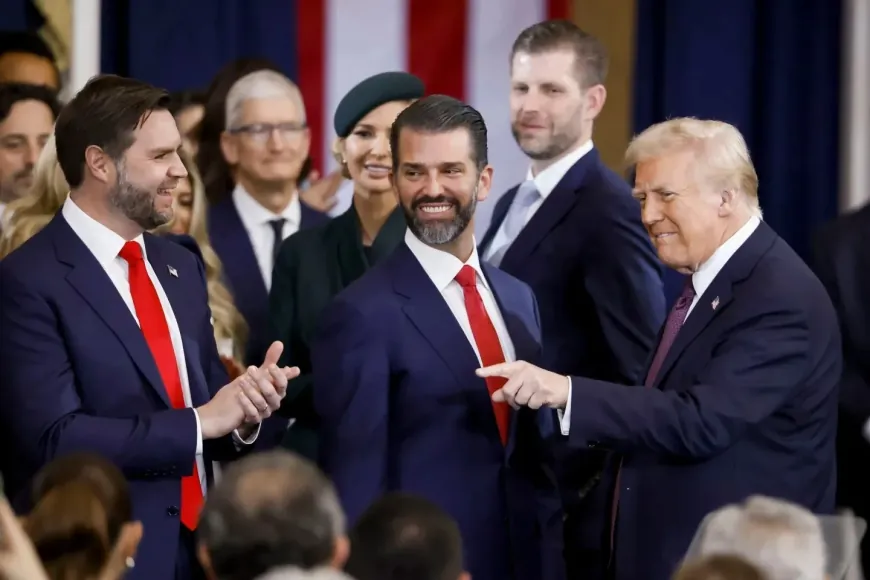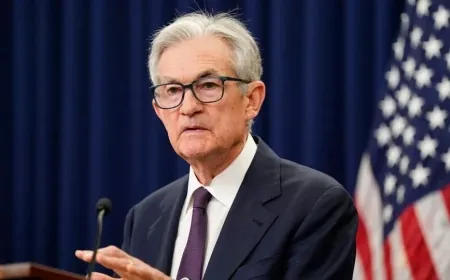Is Trump Jr. Using His Father’s Presidency to Score Big Deals?
Donald Trump Jr.’s venture firm is securing Pentagon-linked investments as his father returns to power—raising red flags over political profiteering.

Since Donald Trump’s return to the Oval Office, the financial and political influence of his inner circle has surged—especially that of his eldest son, Donald Trump Jr. In November, just six days after the election, Trump Jr. joined 1789 Capital, a fledgling investment firm based in Palm Beach, Florida, less than two miles from Mar-a-Lago. His arrival has transformed the low-profile venture capital firm into a rising force in U.S. defense, tech, and government-connected investing.
From Obscure Fund to Power Player
Founded with the goal of creating a “parallel economy” aligned with conservative values, 1789 Capital originally managed less than $200 million. But Trump Jr.’s involvement has supercharged its profile. The fund now boasts strategic investments in coveted private companies including:
-
SpaceX – Elon Musk’s space company, now the top U.S. military launch provider.
-
xAI – Musk’s artificial intelligence startup competing with OpenAI and Anthropic.
-
Anduril – A defense tech firm recently awarded over $22 billion in U.S. contracts.
-
Firehawk Aerospace – A military-grade 3D-printed rocket fuel company.
-
Aeon Industrial and Axiom Space – Key players in defense and space innovation.
Access to Exclusive Investment Deals
Typically, private investments in companies like SpaceX or Anduril are reserved for ultra-wealthy insiders or institutional investors. But thanks to political connections, 1789 has secured a seat at the table. These opportunities are highly sought after, especially as Musk continues to win U.S. government contracts, including a $5.9 billion Space Force deal.
Investing in these companies isn’t just lucrative—it positions Trump Jr. as a gatekeeper to some of the most sensitive and strategically important businesses in America.
Selling Access? The Georgetown “Executive Branch” Club
Trump Jr. isn’t just investing; he’s also cultivating elite networks. Reports reveal that he and his partners launched a $500,000-per-member private club in Washington, D.C., called The Executive Branch. Located in Georgetown, this invite-only club offers high-level access to tech CEOs, business elites, and government insiders. Critics argue it’s essentially a private lobbying channel disguised as a social space.
Conflicts of Interest and Political Influence
1789’s investment success has drawn scrutiny from ethics experts, legal watchdogs, and former government officials. While no laws appear to have been broken, the close proximity of Trump Jr. to firms receiving federal funds has raised deep concerns about transparency and fairness.
“This is a flashing red light,” said Scott Amey, general counsel at the Project on Government Oversight. “If the president’s son is profiting from companies that benefit from federal contracts, it’s hard to believe this doesn’t influence decisions inside government agencies.”
Moreover, many of these deals are being made as the Trump administration aggressively cuts funding for other federal programs, raising eyebrows about the prioritization of defense spending and how those funds may indirectly benefit individuals close to the president.
Political Strategy: Building a “Parallel Economy”
Trump Jr. and his partners have branded 1789 Capital as a fund for “anti-woke” or “MAGA-aligned” ventures. This includes investments in politically conservative media like Tucker Carlson’s new outlet, and in startups that fit into the ideological narrative of American independence, national security, and deregulation.
This strategy resonates with many on the political right, especially as conservative entrepreneurs seek alternatives to Silicon Valley’s more progressive ecosystem.
Echoes of the Hunter Biden Debate
The controversy surrounding 1789 echoes previous Republican criticism of Hunter Biden, who was accused of profiting from his father’s political ties during Joe Biden’s presidency. Trump Jr. himself called out Hunter Biden during the 2020 campaign, accusing him of nepotism. Now, many point out the irony of the president’s own son engaging in similar financial pursuits under the guise of patriotism and entrepreneurship.
“If Hunter Biden had done half of what Trump Jr. is doing, Republicans would be calling for his head,” said a former Trump insider speaking anonymously. “It’s pure hypocrisy.”
Massive Fundraising Goals and Future Influence
1789 Capital isn’t slowing down. The firm has already raised about $500 million, and it aims to close a $1 billion fundby mid-2025, with another $3–5 billion fund in the pipeline for next year.
If these goals are met, 1789 would become a top-tier venture fund, with the ability to steer capital toward companies shaping America’s defense, tech, and even space policy—while potentially enriching its politically connected partners.
Donald Trump Jr.’s entry into venture capital is more than a business move—it’s a test of how deeply politics and private profit can intertwine in today’s America. As 1789 Capital continues to gain traction, the questions about ethical boundaries, access, and influence are only getting louder.
The rise of 1789 could become a defining story of this presidency—not for policy or public service, but for the unprecedented fusion of political power and financial opportunity.
Also Read: Eric Trump-Backed American Bitcoin to Go Public via Nasdaq Merger with Gryphon Digital
































































